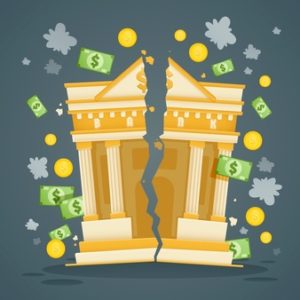A bankruptcy proceeding has pros and cons, be it a Chapter 7 liquidation or a Chapter 13 reorganization. While filing bankruptcy can help, keep in mind that not all types of debt can be wiped out when you file for bankruptcy. Bankruptcy proceedings can wipe out your credit card debt, medical debt, and certain tax debt but not alimony, child support, student loans, and other secured debt. Below are other things that will help you see how declaring bankruptcy may or may not help with your financial problems.
How can a bankruptcy petition help you?
- If you are dealing with debt from credit card companies or medical bills, consider filing a petition in bankruptcy. When you file bankruptcy under Chapter 7, the outstanding balance in your credit card is considered unsecured debt. This can be part of a bankruptcy discharge. You would not have to pay back your creditor or lender if what you owe is considered as a discharged debt.
 While you will have to pay off your unsecured debts in a Chapter 13 bankruptcy case, you will have a longer period to repay. Pursuant to bankruptcy law, your payment plan will likely last for three or five years. Furthermore, a portion of your unsecured debt may eventually be discharged by the bankruptcy court.
While you will have to pay off your unsecured debts in a Chapter 13 bankruptcy case, you will have a longer period to repay. Pursuant to bankruptcy law, your payment plan will likely last for three or five years. Furthermore, a portion of your unsecured debt may eventually be discharged by the bankruptcy court.- While a Chapter 7 petition for bankruptcy cannot prevent the repossession of nonexempt property by a secured creditor, most of your personal property would be exempt. Bankruptcy filings must be pursuant to state law particularly in this aspect. Note that bankruptcy exemptions vary from state to state.
- Most bankruptcy cases cannot have your student loan debt eliminated. However, if you are struggling financially and are planning on filing for bankruptcy, your student loan may be forgiven if you can establish what is called undue hardship.
- Even if you filed for bankruptcy, criminal fines and penalties will likely not be forgiven. Debts from DUI-related deaths or injuries will also remain even after a Bankruptcy Chapter 7 is dismissed.
- An automatic stay is essentially bankruptcy protection from creditor harassment and collection activities. Aside from protecting you from debt collectors, bankruptcies and automatic stay can help stop foreclosure or repossession and can even help stop wage garnishment.
Seek legal help from an experienced bankruptcy attorney early on. This will allow you to learn more about the bankruptcy process and how to file properly. Talk to a bankruptcy lawyer from our firm who will help you get a fresh start and rebuild your financial future. Call us at the Northwest Debt Relief Law Firm for bankruptcy information and legal assistance.











